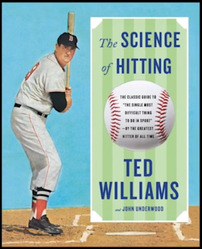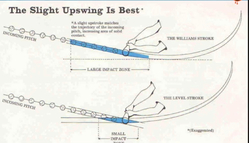I’m on this site because I’ve outlasted my non-virtual baseball parent circle that grows increasingly smaller the longer your kid plays. That, and I’d like to think I can add a little value sharing the parental perspective of HS, juco, D1 and pro ball (although time makes it a little less relevant with each passing year).
My eldest was a good swimmer, made 5A state (Texas) but didn’t medal. Neither he, nor any parent I spoke with ever mentioned wanting to swim in college, even though there are roughly 500 programs: Juco – D1. Maybe the talent level wasn’t there, or maybe swimming doesn’t elicit the same fanaticism or addiction that baseball seems to create?
In 2014, the last year of HS baseball in our house it seemed that every senior varsity starter had a place or was looking for a place to play after HS. Huge difference from swimming. Some never found a place, some never played for the places they found but there were juco, d3 and NAIA commits aplenty. Is this an anomaly to baseball, or are there other HS sports with the same athlete and parental fever? If not, why do you think that is?




